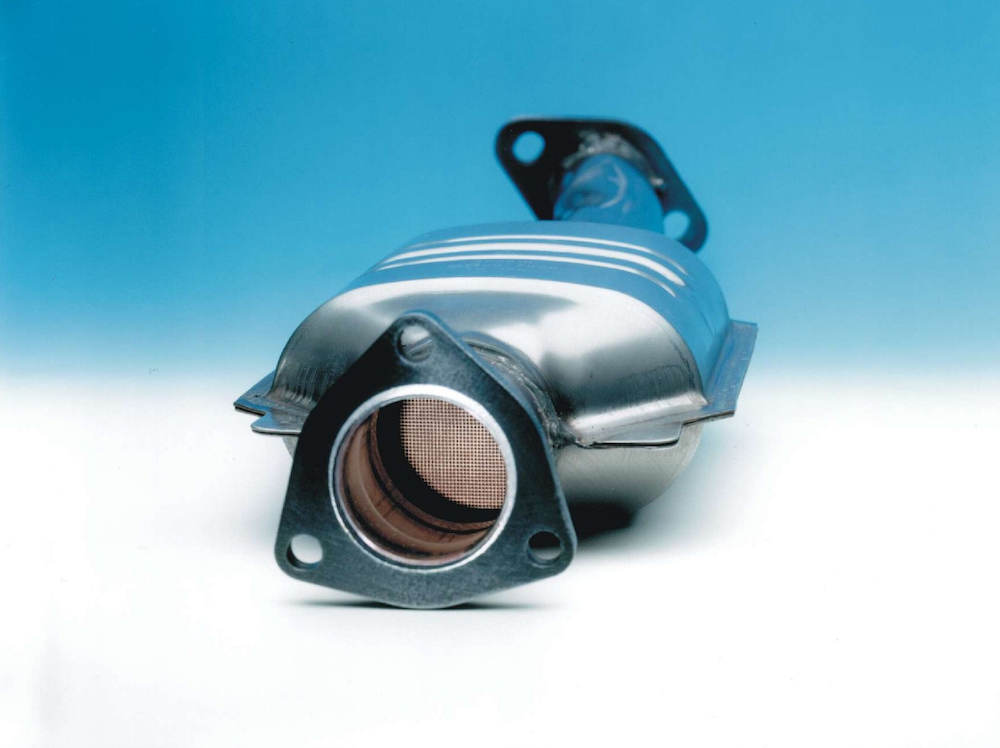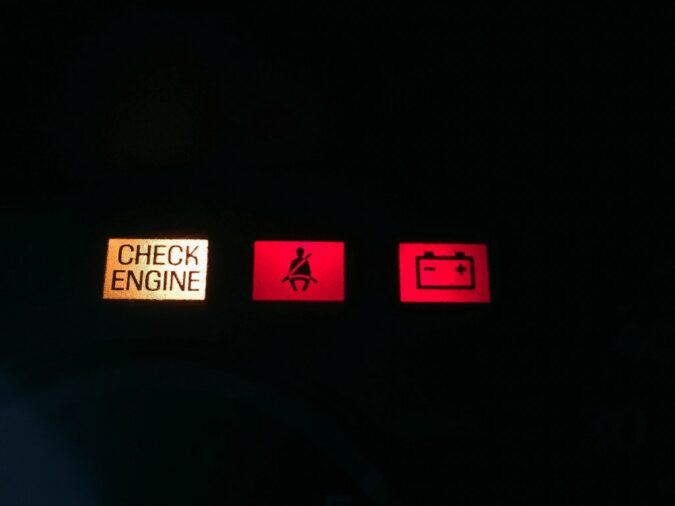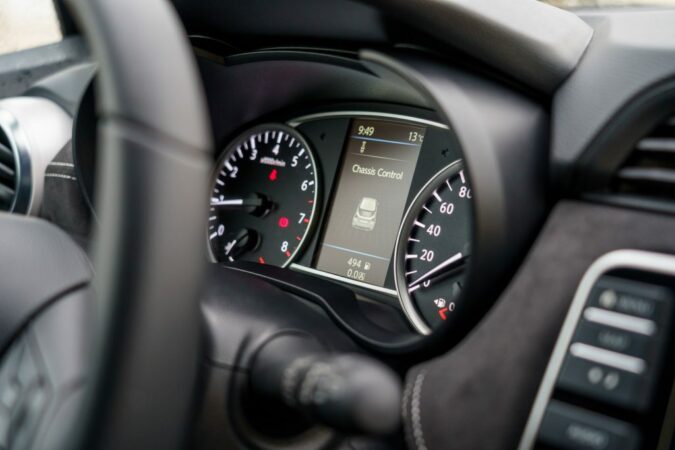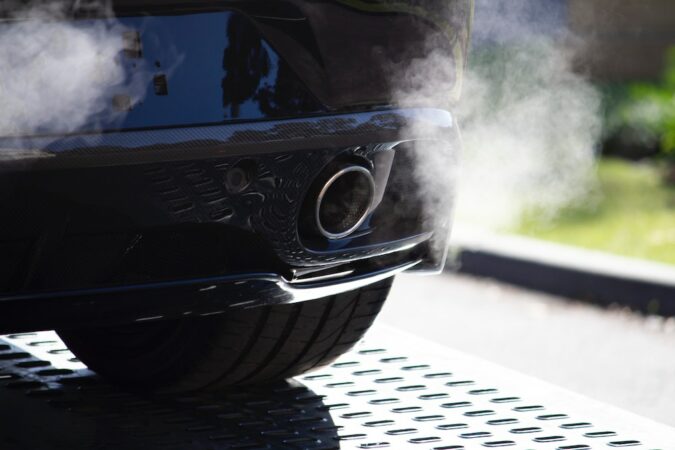Have you ever asked yourself the question of why are catalytic converters valuable? If this is the case, then you are at the right place because, in this article, we are going to make sure that we answer this question and give you the best possible answer.
- Catalytic Converter?
- How It Works
- Why So Valuable?
- Converter Theft
- How To Prevent
- Symptoms
- Diagnosing
- Replacement Cost
- Conclusion
- F.A.Q
A catalytic converter as we all know is an emissions device that is located on the exhaust. This device has been controversial lately because there are a lot of thefts of these components from cars across the country.
We live in difficult times when prices go through the roof and people are struggling to survive. So, they start stealing stuff. And they read somewhere on the internet that the catalytic converter is worth a big amount of money. And they start stealing them. Infuriating a ton of people in the process.
To find out more, check out our guide on why are they stealing catalytic converters and why do people steal catalytic converters. And frankly, this is bad for everyone and people should stop doing it. A catalytic converter will not make you rich. Nevertheless, we are going to learn why are catalytic converters so valuable.
First, we will cover what is a catalytic converter for those who are not into cars and want to learn the basics. Then we will learn how these components work and why are they so crucial. We will then learn from which metals they are produced and why are catalytic so valuable.
Then we will cover the symptoms of a bad catalytic converter, as well as how you can diagnose a bad converter and the catalytic converter price (with some help from a free catalytic converter price app). So, if you want to learn more about this topic, follow along.
What Is A Catalytic Converter
Now before we dive into more complex topics, let’s learn more about the basics. And by this let’s learn what is a catalytic converter. I bet that there are a ton of people reading this article who are not into cars and want to learn the basics first before they start understanding why are catalytic converters valuable. So, let’s get into the topic.
A catalytic converter is a special device that is installed on a car. This device is there basically to convert your exhaust gases from one state to another. But more on the work of this component we are going to cover in the following chapter.
For now, you need to know that this component is located right after the exhaust manifold. They have a tubular design and people often confuse them with mufflers. And that is not correct.
A muffler in general is a component that is installed on the exhaust system. But this component is simply empty. It doesn’t have much structure, except for some steel plates with holes that are basically muffling the sound.
The catalytic converter on the other hand has a honeycomb structure (to find out more, check out our explainer on what is a catalytic converter and what does it do and how does a catalytic converter work). And this honeycomb structure has little tiny holes where the gases pass through and when they get released, they are changed into a different state through conversion.
So, why are catalytic converters so valuable (and why do you need to learn what is a catalytic converter)? More on that we will cover in a bit after we learn how this component works in general.
How Does A Catalytic Converter Work
Now before we dive into why are catalytic converters valuable. Let’s learn how does a catalytic converter work. This is important to know. We will not dive into the chemistry but we are going to briefly explain this process and the conditions needed in order so this process to be successful.
So, what is important for you to know is that inside the catalytic converter there is a chemical process that happens in order for the catalytic converter to work.
This process is known as a redox reaction. This converter is basically catalyzing a redox reaction. There are two-way catalytic converters and most modern are three-way catalytic converters.
But what is the redox reaction? Well, this basically is combining oxygen, carbon monoxide, and unburnt hydrocarbons to produce carbon dioxide and water. This is why you have water leaking from the exhaust pipe when the car is running.
Another thing that three-way catalytic converters do very well is a reduction of NOx particles. NOx is simply nitrogen oxide and this element is highly toxic. This is why you need this equipment.
If the catalytic converter does not remove this element, we would still be living with smog in our cities. And thank god somebody invented these components so we don’t have to.
Another thing to add is that in order for the catalytic converter to start working, it needs to be warm enough. The proper working temperature is between 1,200 and 1,600 degrees Fahrenheit (you can confirm this with a catalytic converter temperature test). And this is why a lot of people who drive on short relations have trouble with clogged catalytic converters (which you can try fixing by figuring out how to hollow out a catalytic converter without removing it). But why are catalytic converters valuable? More on that in the next chapter.
Why Are Catalytic Converters So Valuable
So, we came to the important bit and that is why are catalytic converters so valuable (and the importance of learning how to prevent catalytic converter theft). Why they are so worthy that people even start to steal them in the first place (note the signs of a stolen catalytic converter)?
Well, in order to understand this, we need to understand the world we live in. Prices of metals have skyrocketed recently. And what is worth knowing is that these catalytic converters are produced out of many highly valuable metals.
The amount of these metals used in the catalytic converter is not that big. It’s only a few grams. But is still enough to make these components cost a whole fortune.
Inside of these components, there is the honeycomb structure as we mentioned. And this structure has some of these metals. The metals that are installed in these converters in most cases are platinum (to learn more, check out our guide on how much platinum is in a catalytic converter), palladium, and rhodium (for more insight, check out our guide on which catalytic converters have the most rhodium).
These are extremely rare metals that are hard to come by in nature. This is why they cost a whole fortune to obtain and this rises the costs of the catalytic converters through the roof. A catalytic converter for a Prius could easily cost $2,000 or more in some cases.
And considering this, we can conclude why are catalytic converters valuable and the simple answer is, that they are made of precious metals. And here we come to the next topic which is catalytic converter theft (which you’ll notice if you understand what does a missing catalytic converter sound like and how to tell if a catalytic converter is missing).
Catalytic Converter Theft
Since we covered why are catalytic converters valuable, now it is time to discuss another topic that is closely related to the value of these components and this is catalytic converter theft (which you can learn more on in our guide on F-150 catalytic converter anti-theft).
This is a really common occurrence nowadays. In the past, people didn’t care about catalytic converters and everything was cool. But thieves somehow acknowledged that in these components there is some value and they are snatching who knows how many of these components each day in the US. This explains why are catalytic converters being stolen and why do catalytic converters get stolen (not to mention, why catalytic converter theft is a thing).
So, much that this is an alarming situation. People are ripped off basically for a $100 profit that some guy will make if they steal catalytic converters. This helps to explain why do they steal catalytic converters and why steal a catalytic converter. And something has to be done concerning this issue.
There are numerous reports on the news and everywhere about these occurrences. Especially where poor communities live. This is why the authorities need to do something for things to change and people not have to deal with problems like this.
Nobody wants to wake up in the morning and find their car in the air and see that some guy with a buzz saw ripped off their catalytic converter. This is not good. Especially knowing that these components are difficult to replace because they are so costly.
So, we learned why are catalytic converters valuable and more about catalytic converter theft. Let’s now take a look at what you can do in order to prevent theft.
How To Prevent Catalytic Converter Theft
We covered why are catalytic converters so valuable and why they are a target of theft (for more insight, check out our guide on how to know if your catalytic converter is stolen and whether can I drive with a stolen catalytic converter). Let’s now take a look at how you can prevent the theft of your catalytic converter.
Smart people think in advance, even before these things happen and you should be one of them. And you should be one of these people if you don’t want to pay for your mistakes.
So, how you can prevent this from happening? The first thing you need to be aware of is to watch out where you park. Avoid places where are no people around. You don’t want to leave your car in an empty parking lot or on a dark street.
Also, watch out in which neighborhood you park. Avoid certain neighborhoods if you know that there is shady stuff going around, especially at night.
And when it comes to protection if you run a sedan, it is almost impossible. But if you own a truck or an SUV, there is an option. There are steel plates that are sold that you can screw on the frame and this will basically prevent access to the catalytic converter.
There are even special socket screws that are different from anything else out there. So, it is almost impossible to find a socket that matches your socket key. If you have a truck, you need to check these options. So, we learned why are catalytic converters so valuable and how to prevent theft. Now let’s cover the symptoms of a bad catalytic converter (you can learn more in our guide on can a bad catalytic converter cause a misfire, as well as the 2011 Equinox catalytic converter recall).
Symptoms Of A Bad Catalytic Converter
Now after we learned why are catalytic converters valuable, we think that now it is time to learn the symptoms of a bad catalytic converter.
As with any component on our cars, the catalytic converter also creates a ton of symptoms when it fails. So, which are these symptoms? Let’s elaborate on them in the following chapters.
Why Are Catalytic Converters Valuable, Symptoms #1: Check Engine Light
Now as we learned why are catalytic converters valuable, we can move on and start discussing some interesting topics. More precisely, the first symptom is associated with a bad catalytic converter.
And this symptom is the check engine light. So, how come? Why is this happening in the first place? Well, before and after the catalytic converter there are O2 sensors. These sensors adjust the air to fuel ratio and also send data to the PCM about the work of the catalytic converter.
So, when the catalytic converter fails or gets too clogged, it will trigger the check engine light and the codes P0420 and P0430. These two codes are an indication that one of your converters is broken and needs replacing.
Why Are Catalytic Converters Valuable, Symptoms #2: Weak Acceleration
Now after we covered why are catalytic converters valuable, we can move on to the second symptom, and the second symptom that you will notice will be the weak acceleration.
The car will not like to accelerate when this component is clogged. So, why is this the case? This is the case because the engine is simply not breathing. There is a ton of backpressure that is created. So, no gases out from the engine, then which means not enough oxygen in the combustion.
In this situation, the car will be really slow to respond and you will have a hard time accelerating the car since it will not like to pull at all.
Why Are Catalytic Converters Valuable, Symptoms #3: Poor Engine Work/ Rough Idle
The third symptom that we will cover since we learned why are catalytic converters valuable is the poor engine work.
The engine will run really poorly when this component is clogged up. The RPM will drop and rise all the time. This rough idle will be present at all times.
The gases will simply struggle to pass this clogged catalytic converter. Just imagine that only 30% of the catalytic converter is able to convert these gases, this is not enough. So, beware of this symptom.
Why Are Catalytic Converters Valuable, Symptoms #4: Engine Stalling
The next symptom of a clogged converter that we are going to cover since we learned why are catalytic converters valuable is the situation when the engine stalls.
If there is no passage that will allow the gases to escape into the atmosphere, there will be engine stalling problems. The backpressure will simply be too much for the engine to handle and since it cannot release the exhaust gases, it will stall the engine.
So, if your engine keeps stalling after you start the car, this might be one of the reasons for a clogged catalytic converter.
Why Are Catalytic Converters Valuable, Symptoms #5: Black Smoke From Exhaust
The next set of symptoms that we are going to cover after we learned why are catalytic converters valuable is connected with the situation when the catalytic converter has disintegrated inside of the housing.
The first on our list is the black smoke that is coming from the exhaust. This is the case because you basically do not have a honeycomb structure anymore (to find out more, check out our guide on what does a catalytic converter look like).
So, the gases move out from the exhaust freely and they are not controlled, this means that your car pollutes a lot in this situation. And the black smoke is one of the consequences of this way of work.
Why Are Catalytic Converters Valuable, Symptoms #6: Rattling Noises
The next symptom that we are going to cover after we learned why are catalytic converters valuable is the situation when you have rattling noises.
Imagine that you press on the gas pedal really hard and there are rattling noises coming from the undercarriage. What happens, in this case, is the honeycomb structure inside of the catalytic converter has disintegrated.
And it is the same situation as you have a popcorn machine. The pieces inside the converter are hitting the catalytic converter housing. A clear sign that you have a problem.
Why Are Catalytic Converters Valuable, Symptoms #7: Rotten Egg Smell
The next symptom that we are going to cover after we learned why are catalytic converters valuable is the rotten egg smell that is coming from the exhaust. So, why is this the case? Why this smell is released from the exhaust?
This is actually the case because there is a small amount of sulfur in the fuel. So, the converter does the job to convert this sulfur.
When the catalytic converter is damaged permanently and is not doing its job. You will start to notice a rotten egg smell coming from the exhaust. This smell will be most present when you press on the throttle really hard. And this is why catalytic converters are valuable.
Not only when it comes to their resale value but also when it comes to the value they have for the environment. These components are basically saving a ton of lives every day and help us breathe cleaner air.
Why Are Catalytic Converters Valuable, Symptoms #8: Failing The Emissions Test
The last symptom in our list that indicates why are catalytic converters valuable is the situation when you fail the emissions testing. Yes, that’s right, whenever you have a bad catalytic converter, you can expect to fail the emissions testing. Why is this so?
This is the case because, in this situation, the vehicle pollutes a ton more than it should. Let’s imagine that the catalytic converter has completely disintegrated. This will result in the inability of the converter to do its job.
So, the pollution will be many times stronger without this component being in proper condition. If you live in California or New York, there are high chances that you will fail the emissions if you have a car like this. And this is why are catalytic converters so valuable. But how you can diagnose a bad catalytic converter? Let’s find out next.
How To Diagnose A Bad Catalytic Converter
We learned why are catalytic converters valuable, now let’s learn how you can diagnose a bad catalytic converter. Is this possible without removing it? Let’s find out.
You can diagnose a catalytic converter without removing it. The first thing you will need is an OBD2 scanner.
Then you will have to scan the car for codes. If you get a P0420 or P0430 code, it means that one of the converters is bad. V6 and V8 engines have two of these. So, this is why there are two codes. One for bank 1 and one for bank 2. If you have an inline engine, then you probably will only get the P0420 if the catalytic converter is bad.
If you get these codes, the next step will require the removal of these components and proper inspection. This can be laborious and that’s why we recommend visiting a shop for this type of work.
Catalytic Converter Price
We learned why are catalytic converters valuable. Now let’s see more about how much money they are valued. What is the price for a new converter and also what is the catalytic converter scrap price? For more context, you could also check out our guide on the Chrysler 300 catalytic converter scrap price and the 2005 Ford F150 catalytic converter scrap price.
The average price of a new catalytic converter is in the range of $1,200 and $1,600. But there are exceptions, for example, the cost of a new catalytic converter for a Prius is about $2,000 (a bit costlier than a 2000 Jeep Cherokee catalytic converter or the 2008 Infiniti G35 catalytic converter or a 2008 Lexus ES 350 catalytic converter). For exotic cars, these prices even go above $2,500 in some cases.
The catalytic converter scrap price (as with the Ford catalytic converter price and the VW Jetta catalytic converter scrap price) on the other hand isn’t a lot of money. For a small one, you can get about $100 or even less. Bigger ones can go up to $450, or $500. Still, it really depends on the type of catalytic converter. So, your best bet would be to contact some of the companies that purchase these converters.
Facts about Rhodium and Catalytic Converters
- Catalytic converters contain valuable metals such as platinum, palladium, and rhodium, with the latter being the most valuable metal in the world.
- Thefts of catalytic converters have increased by 325% from 2019 to 2020, making it a common problem for car owners.
- Rhodium is very rare and is found as a metal rather than a chemical compound due to its chemical inertness.
- Rhodium is used in exhaust systems because of its inert properties, which make it suitable for purifying gasoline exhaust.
- Rhodium is more chemically inert than gold and platinum, making it a better choice for catalytic converters.
- Rhodium promotes the reduction of nitrogen oxide pollutants, which cause smog and acid rain.
- Rhodium forms unique-looking complexes with organic molecules.
- Protecting your catalytic converter in New York City is difficult due to the high incidence of thefts, which can occur even when parked in garages.
- Bicycle theft is also a common problem in NYC, with thieves learning to detach street signs to steal locked bikes.
- The value of rhodium as of January 2022 was $16,850 per ounce.
Conclusion
In this article, we have covered quite a bit when it comes to catalytic converters. First, we learned what are these components and how they work. Then we learned why are catalytic converters valuable and cost a lot of money.
Then we covered the symptoms of a bad catalytic converter and how you can diagnose it. And the cost can you expect to pay in order to replace this component.
F.A.Qs
Now let’s answer some frequently asked questions.
What Is A Catalytic Converter
A catalytic converter is an emissions device that is installed on every vehicle that has a gasoline combustion engine. This device converts the gases and the car pollutes a lot less than without a converter.
What Does A Catalytic Converter Do
This catalytic converter in simple words is a catalyst. Once it gets up to temperature. It creates a redox reaction. And during this chemical reaction, the gases that are inside the converter are basically converted into something less toxic.
Do All Cars Have Catalytic Converters
Yes, all modern cars have this device installed. The law is that every new vehicle sold in the US has to have a catalytic converter installed. If not, it couldn’t be sold in the dealership. This rule does not affect old cars.
How Many Catalytic Converters Are In A Car
The number of these devices really depends on the type of engine you are running. If you have an inline engine, you most likely have only one of these devices. If you have a V6 or a V8, you have two of these converters, one per bank.
What Metals Are In A Catalytic Converter
There are a few precious metals used in the manufacturing of these components. The most common are platinum, palladium, and rhodium.
Can You Drive Without A Catalytic Converter
Technically you can drive without this device. But if you don’t have it on while you do your emissions testing, you will highly likely fail the test and you will be forced to install this component in order to pass.




